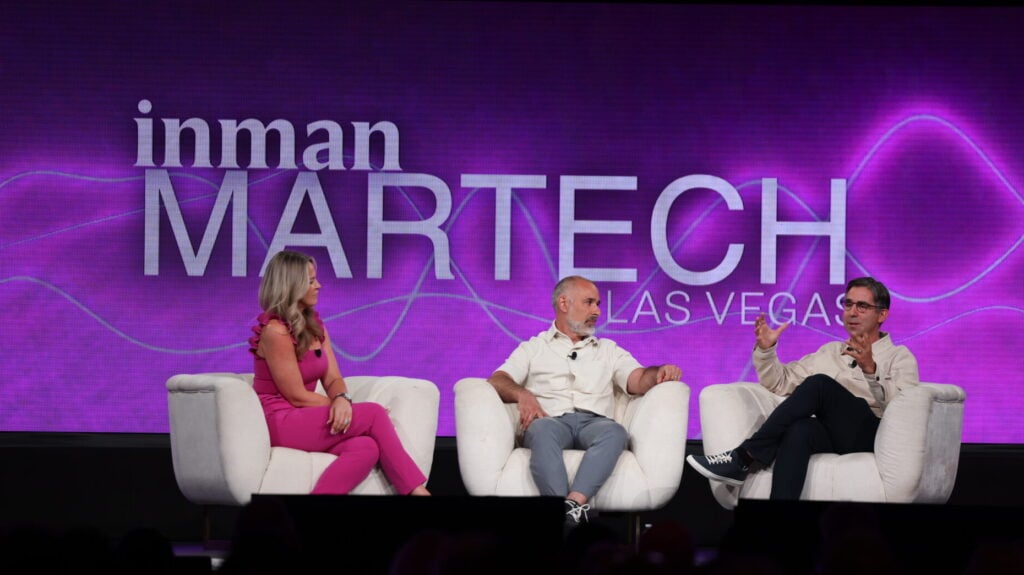
A panel of marketing and AI experts at Inman Connect Las Vegas discussed how consumer sentiments and product choices can help make homebuying faster and better for the consumer.
HAPPENING NOW! At Inman Connect Las Vegas, July 30-Aug. 1, 2024, the noise and misinformation will be banished, all your big questions will be answered, and new business opportunities will be revealed. JOIN US VIRTUALLY.
Alex Elias, CEO and co-founder of Qloo, was asked by a skeptical investor to further demonstrate the power of his company’s “cultural artificial intelligence.”
The challenge was to determine the fashion preferences of his neighborhood. So Elias launched the application, drew a polygon around his investor’s home, and asked Qloo for a report.
It predicted the very brand of pants the investor was wearing.
Artificial intelligence’s use in predicting consumer trends is driving remarkable change in the accuracy of advertising messaging, how music services recommend new artists and, to the interest of Inman Connect’s Las Vegas audience, what homes a person may buy.
“We’ve all been using AI longer than we think, from Pandora to Spotify and Netflix, you’re getting intelligence from behind the scenes that sort of decides what it is you consume,” Elias said. “When we started Qloo, we wanted to take that kind of data science and that type of AI to expand it across all categories.”
The company has scaled its AI across a range of industries, such as dining and music and, according to Elias, is most excited about the “enormous implications for real estate.”
Alongside Elias on stage was the founder and CXO — Chief Experience Officer — of Torque, Eric Masi. The Chicago-based company works with real estate companies in all sectors, including industrial. A component of Torque’s mantra is that branding begins with people, and that AI is doing a lot to help us understand how people operate.
“How can you use AI to really build a brand, the brand of a home, the brand of a neighborhood? Well, it’s like dating,” Masi said. “We all want to read the mind of the other person; reading your date’s mind is kind of an obsession.”
Elias agreed, saying that when AI is applied to real estate, it suddenly becomes more individualized and qualitative. He provided an anecdote about how an agent’s intuition will always be valuable to buyers and sellers, but that AI can scale that intuition, and create models around the fundamental expertise of the agent.
“What we’ve come to realize is that [agent intuition] is not that different from how Spotify makes a recommendation,” Elias said. “There’s a super exciting opportunity now with the consumer-friendliness level we’re at with AI to scale that intuition, to empower brokers to really understand the tastes of the people they’re serving.”
The pair agreed that if AI can learn what kind of pants a person in a specific neighborhood is most likely to buy, there’s no reason the industry can’t become better at helping buyers determine what kind of home they want, and general consumer tastes — clothes, music, dining choices — absolutely play a part in that.
A number of startups are capitalizing on Elias’ and Masi’s collective take, using it to better align lifestyles and deep personal wants with available inventory. LocalizeOS, Lundy, Eden, ListAssist and Tomo are a few examples. The major portals, which have a bigger lift to achieve integration, are moving toward more a human search experience, as well.
“Where this gets really interesting is that you can tell your customer base that you have this tool, that you have the ability to really get to what matters to them,” Masi said. “That’s a differentiator. Instead of advertising on a billboard that you know your city, you can say, ‘We have data; we have tools.’ Once you have a great tool, claim it. It’s an edge.”
“In this climate, having data is an edge, it’s an advantage,” said Elias.

